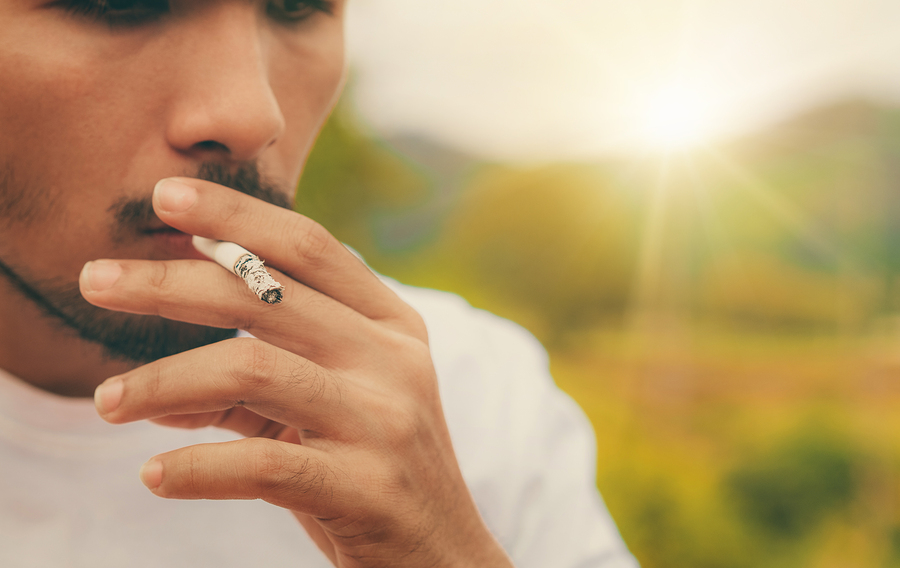
People that drink alcohol regularly often also smoke cigarettes when they are out drinking. It is also very common for alcoholics to also struggle with cigarette addiction simultaneously. Why are the two problems so closely connected?
One of the reasons that people smoke when they drink, whether they are aware of it or not, is that nicotine helps offset that sedative effects of alcohol. The body may be seeking something to counteract the slow reaction times and other issues that go along with consuming alcohol. Another possible cause is that alcohol actually increases the rewarding effects of nicotine when the two substances are consumed together.
Studies have shown that when compared to a placebo drink, alcohol tended to enhance the pleasure and calming effect of cigarettes with nicotine. Even a fairly low dose of alcohol can elicit these effects, according to the study, which explains why people who drink have a very hard time quitting smoking. The interaction of the two drugs makes it very common for people in alcohol recovery to continue being addicted to cigarettes for some time.
Because cigarettes combat some of the effects of alcohol and alcohol in turn increases the effects of nicotine, people make a strong association with both drug habits. Alcoholics in recovery who still smoke may feel a stronger craving for alcohol when they have a cigarette. Someone who has quit smoking may relapse and smoke a cigarettes if they have had a few drinks.
For optimal health and to avoid the drug habits influencing one another, it can be beneficial to quit both smoking and alcohol at the same time. Both alcohol and cigarettes are toxins that cause cravings for one another and affect recovery. Quitting both can be challenging but it will create a faster path to sobriety and increased wellness.